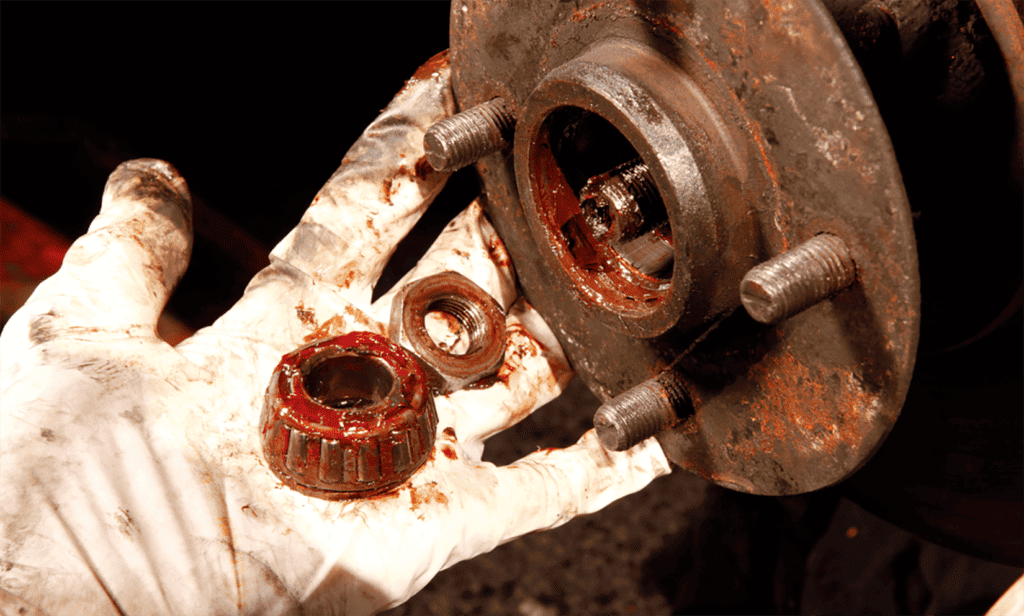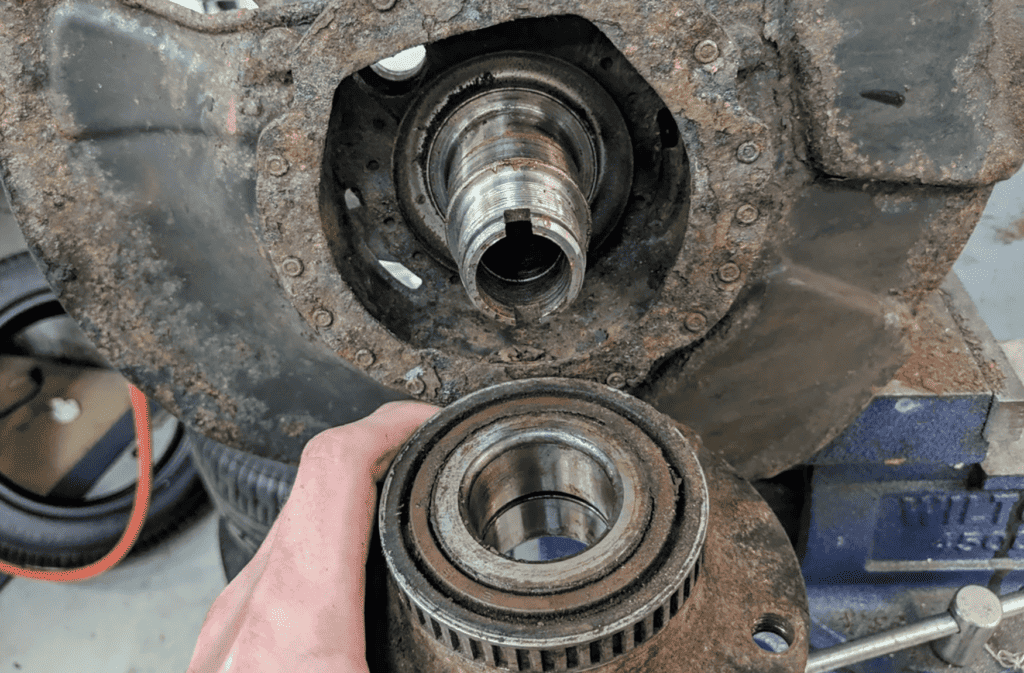In the intricate world of automobiles, wheel bearings play a crucial role in ensuring a smooth and safe ride. However, when these components fail, it can lead to a series of problems, some of which can be dangerous. In this article, we will explore the top common reasons for wheel bearing failures in vehicles, providing insights into what causes these failures, how to identify them, and more.
The Role of Wheel Bearings in Vehicles
Wheel bearings are vital components of a vehicle’s wheel assembly, aiding in the rotation of the wheels. They carry the entire weight of the vehicle, enabling a smooth ride and reducing friction between the moving parts. Properly functioning wheel bearings are crucial for the safety and performance of your vehicle.

Identifying the Culprits: Causes of Wheel Bearing Failure
• Wear and Tear Due to Aging: Just like any other mechanical part, wheel bearings are subject to natural wear and tear over time. The constant friction and heat during vehicle operation can slowly degrade the bearings, leading to failure.
• Poor Road Conditions: Wheel bearings are designed to be robust, but they are not invincible. Constant exposure to harsh road conditions, such as potholes or rough terrains, can damage the bearings and lead to premature failure.
• Improper Installation: Incorrect installation can also lead to wheel bearing failure. If the bearings are not properly aligned or are tightened too much or too little, it can cause uneven wear or excessive heat, resulting in premature failure.
• Overloading the Vehicle: Regularly driving with an overloaded vehicle can also take a toll on your wheel bearings. The excess weight puts extra stress on the bearings, causing them to wear out faster.
• Lack of Maintenance: Proper and regular maintenance is vital for the longevity of wheel bearings. Neglecting regular checks and lubrication can cause the bearings to wear out quickly.
• Driving Through Deep Water: Finally, driving through deep water can be detrimental to your wheel bearings. Water can seep into the bearings, leading to rusting and ultimately failure. It’s crucial to check and service your wheel bearings after such an incident to avoid any future issues.
The Frequent Offender: The Major Cause of Bearing Failure
Among these causes, one frequent offender stands out – poor maintenance. Wheel bearings, like any other mechanical components, need regular maintenance for optimal functioning. This includes regular cleaning, lubrication, and inspection for signs of wear and tear. Neglecting these steps can lead to premature bearing failure.
Early Detection: Recognizing the First Signs of Bearing Failure
Humming or Growling Noise: One of the earliest and most noticeable signs of a failing wheel bearing is a persistent humming or growling noise that increases with speed. This noise is produced when the bearing loses its lubricity or becomes pitted.
Uneven Tire Wear: Another telltale sign of a potential wheel bearing failure is uneven tire wear. A damaged bearing can cause the wheel to tilt slightly, leading to abnormal tire wear. While there could be other causes of uneven tire wear, it’s always worth checking the condition of the wheel bearings.
Loose Steering Wheel: If you notice a feeling of looseness or wobbling in the steering wheel, especially when making turns, it could be a sign that a wheel bearing is failing. This happens because the worn-out bearing can’t hold the wheel tightly, affecting the steering stability.
Should you observe any of these signs, it’s imperative to have your vehicle inspected by a professional mechanic as soon as possible. Early detection and repair can prevent further damage and ensure safe driving conditions.
The Dilemma of Replacement: Is It OK to Replace Just One Wheel Bearing?
When it comes to wheel bearing replacement, many people ask if it’s okay to replace just one wheel bearing. While it’s technically possible, it’s generally recommended to replace them in pairs. This is because if one bearing has failed, the other is likely not far behind. Replacing them in pairs also ensures a balanced and smooth ride.

Mimics and Misdiagnoses: What Can Mimic a Bad Wheel Bearing?
Worn-out tires: One of the most common culprits that can mimic a bad wheel bearing is worn-out tires. When your tires are unevenly worn, they can produce a similar humming or grinding noise that a failing wheel bearing does. This can easily mislead vehicle owners into thinking that they have a bad wheel bearing.
Bad CV joint: Another common issue that can imitate a failing wheel bearing is a bad CV joint. CV (Constant Velocity) joints are part of your vehicle’s drivetrain. When they start to fail, they can produce a loud clicking noise, especially when turning, which can be easily mistaken for a wheel bearing problem.
Power steering problems: Power steering issues can also mimic bad wheel bearing symptoms. Problems like low power steering fluid, a loose or damaged belt, or a failing power steering pump can create noises and steering difficulties similar to those produced by a bad wheel bearing.
Given these possible mimics, it’s essential to get a proper diagnosis from a professional mechanic. This ensures that the root cause of the problem is correctly identified and addressed, preventing further damage and potential safety risks.
Navigating Risks: Is It Safe to Drive with a Bad Wheel Bearing?
The simple answer is no. Driving with a bad wheel bearing can be risky. It can cause the wheel to stop while driving, leading to a dangerous situation. Additionally, a failing wheel bearing can cause further damage to related components such as the hub, spindle, and knuckles.
Conclusion
While wheel bearings may seem like small, insignificant parts, their failure can lead to serious problems. Understanding the causes of wheel bearing failure, recognizing the early signs, and knowing when and how to replace them can save you from potential risks and damages. Always remember that when it comes to the safety and performance of your vehicle, regular maintenance and timely repairs are crucial.
